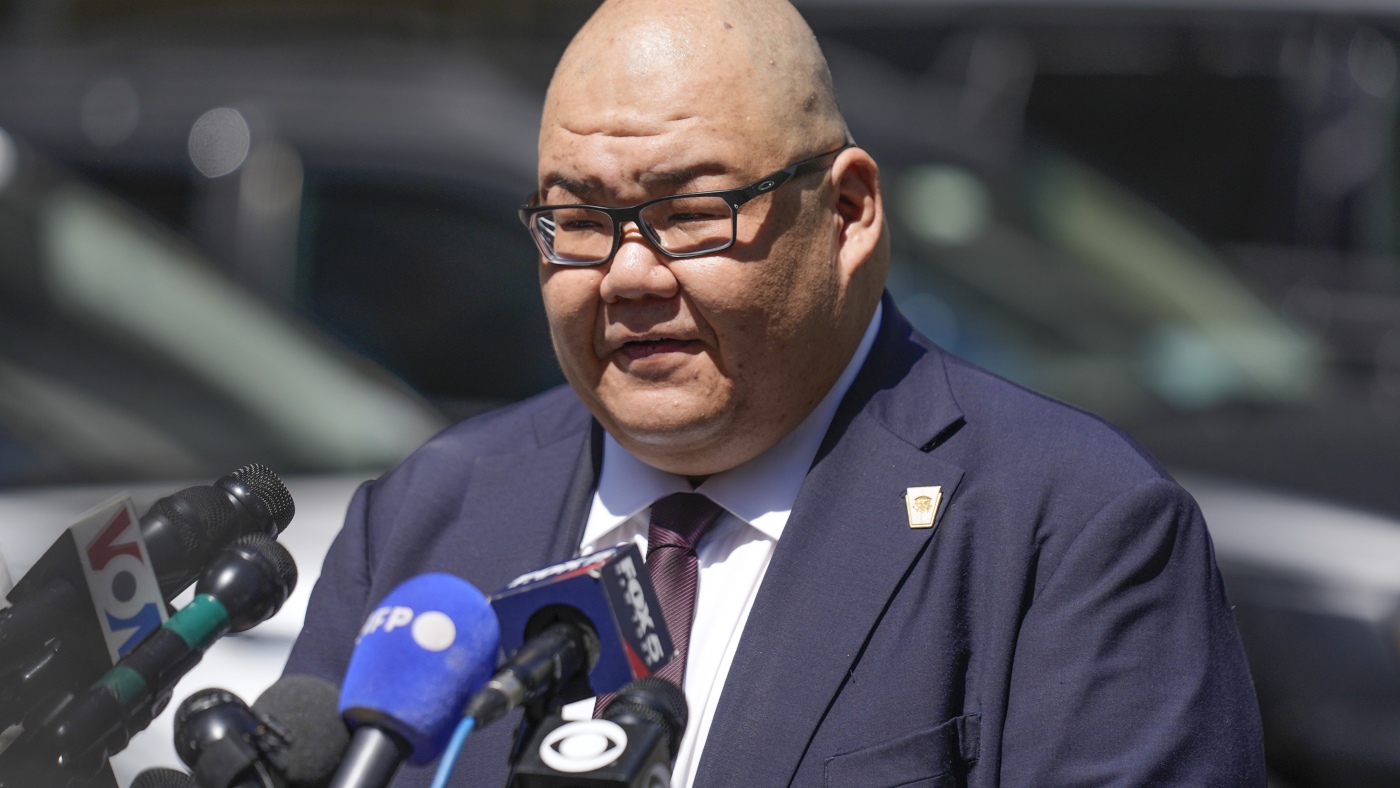New Georgia rule may open the door to local officials declining to certify elections : NPR
Watchdog groups and pundits are sounding the alarm about the potential for mischief when it comes to certifying the election, but experts say there’s still plenty of guardrails.
AILSA CHANG, HOST:
Donald Trump’s efforts to overturn the 2020 election put a spotlight on all sorts of previously mundane or administrative parts of voting, like slates of electors, mail ballot drop boxes and especially the process of certification, which is the finalizing of vote totals. A new rule in Georgia could potentially open the door to a growing trend of local officials declining to certify elections. NPR voting correspondent Miles Parks joins us now. Hey, Miles.
MILES PARKS, BYLINE: Hey there.
CHANG: OK, so let’s start with certification. Tell us more about what it is and why it is such a big deal.
PARKS: Right. This is not something most people had ever thought about before 2020…
CHANG: Yeah.
PARKS: …Because it really is more of a formality, where these local political bodies, usually county canvassing boards or city commissions – they sign off and confirm the work of election officials. This was never a controversial step until the last presidential election, when then-President Donald Trump personally called two members of a canvassing board in Michigan trying to convince them not to certify the election there.
The problem is Trump and his allies seem to misunderstand the role of local certifiers. They’re not tallying votes. They’re not checking signatures or running audits. That’s the job of election officials. In every state, there are channels available to voters and to candidates if they want to challenge part of the counting process. Often this happens through the filing of lawsuits, but there are no states where this sort of certification refusal is legal.
CHANG: Right. But since that Trump phone call in 2020, we’ve heard more and more about this happening. Why is that?
PARKS: Right. So this is another sign that these sort of election conspiracy theories have seeped into every aspect of voting. In recent years, dozens of Republican local officials, often citing these conspiracy theories or some sort of patriotic duty, have voted against certification in their counties. And this is all getting new attention now because of this new rule that was passed recently by the Georgia elections board that seems to allude to these boards being investigative bodies. Many election law experts think that rule violates state law, and litigation is already pending on it.
CHANG: Well, how have the courts viewed these sorts of cases as they’ve started to pop up in recent years?
PARKS: So this is what makes election officials feel really confident this year because in every single case across the country where a county has voted not to certify, courts have stepped in forcing certification. Derek Bowens, who runs elections in Durham County, N.C., told me state law in his state has language specifically indicating people in these positions do not get discretion.
DEREK BOWENS: Under North Carolina law, the statute says a county board election shall. It doesn’t say might or consider or maybe.
PARKS: So this is not ideal. When any county declines to certify, it definitely lends credence to this idea that something is wrong, even if there isn’t evidence. But there is a general confidence in the elections community that courts will be an effective backstop against this type of interference.
CHANG: I get the sense, though, that voting officials are almost planning on this being part of their post-election process this year, right?
PARKS: Yeah, that’s definitely true at the state level. And that’s partly because many of them are now familiar with this playbook. In the midterms, for instance, three different Pennsylvania counties declined to certify because they disagreed with a court order about how to count mail ballots. Here’s Pennsylvania Secretary of the Commonwealth Al Schmidt.
AL SCHMIDT: And it wasn’t because the election was close. That wasn’t because there was any evidence whatsoever of voter fraud or an election irregularity. So we went to court and promptly compelled them to certify. So if we see that happen again in 2024, we will be ready to go.
PARKS: Schmidt told me he is not too worried about the certification issue, but his office will be prepared.
CHANG: That is NPR’s Miles Parks. Thank you so much, Miles.
PARKS: Thank you.
(SOUNDBITE OF MAHALIA SONG, “IN THE CLUB”)
Copyright © 2024 NPR. All rights reserved. Visit our website terms of use and permissions pages at www.npr.org for further information.
NPR transcripts are created on a rush deadline by an NPR contractor. This text may not be in its final form and may be updated or revised in the future. Accuracy and availability may vary. The authoritative record of NPR’s programming is the audio record.
Source link



